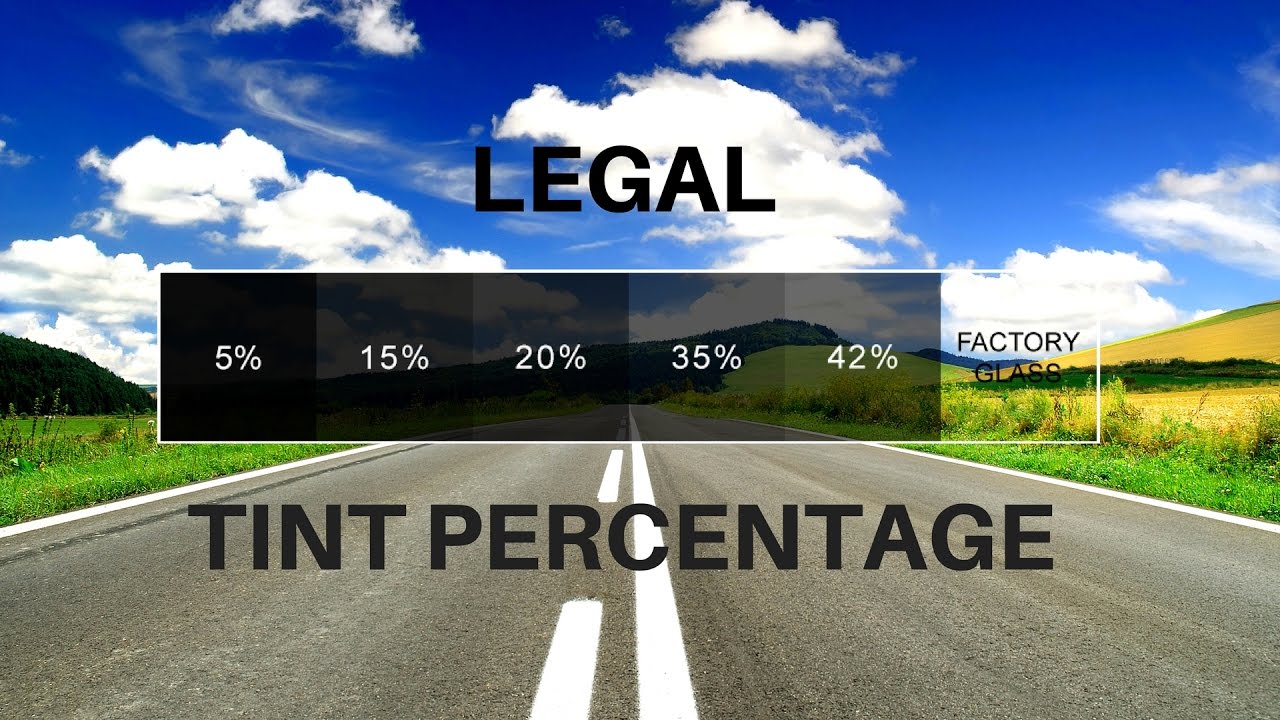Introduction to Rhode Island tint laws
Rhode Island, like many other states, has specific laws regarding window tinting on vehicles. These laws are in place to ensure the safety of both drivers and law enforcement officers. It is important for vehicle owners to understand these laws in order to comply with them and avoid potential penalties. This article will provide an overview of the legality of having 35% tint in Rhode Island, including information on tint percentages, the legal limit, exceptions, penalties, tinting windshields, measuring VLT, choosing compliant tint, frequently asked questions, exemptions for medical conditions, recent changes in legislation, and resources for further information and assistance.
Understanding tint percentages and VLT
Window tint percentages refer to the amount of light that is allowed to pass through the tinted windows. This is measured in terms of Visible Light Transmission (VLT) percentage. For example, a 35% tint means that only 35% of light is allowed to pass through the window, while the remaining 65% is blocked. The lower the VLT percentage, the darker the tint, and vice versa. It is important to note that different windows on a vehicle may have different legal limits for tint percentages.
The legal limit for window tint in Rhode Island
In Rhode Island, the legal limit for window tint varies depending on the type of window. For the front side windows, the tint must allow at least 70% of light to pass through (30% VLT or higher). For the rear side windows and the rear window, there are no specific restrictions on tint darkness. However, it is important to keep in mind that the total combined light transmission from all windows must be at least 70%.
Exceptions to the tinting regulations
There are certain exceptions to the tinting regulations in Rhode Island. Vehicles used for transporting passengers for hire, such as taxis and limousines, are allowed to have darker tint on all windows. Additionally, vehicles owned or leased by a municipality are exempt from the tinting regulations. However, it is important to note that these exceptions only apply if the vehicle meets specific criteria outlined in the state’s laws.
Penalties for exceeding tint limits in RI
If a vehicle’s window tint is found to be in violation of Rhode Island’s regulations, the driver may face penalties. The first offense is considered a civil violation and can result in a fine of up to $85. Subsequent offenses can lead to higher fines and potential license suspension. It is important to ensure that your vehicle’s window tint complies with the legal limits to avoid these penalties.
Can you tint your windshield in Rhode Island?
Unlike some states, Rhode Island does not allow windshield tinting, except for a strip along the top of the windshield. This strip must not exceed six inches in height and should be non-reflective. Tinting the entire windshield is not permitted, as it can obstruct the driver’s vision and pose a safety risk.
How to measure the VLT of your car windows
To determine the VLT percentage of your car windows, you can use a VLT meter. These handheld devices measure the amount of light that passes through the tinted window, giving you an accurate reading. It is important to ensure the accuracy of the meter and follow any manufacturer instructions for obtaining a proper measurement.
Tips for choosing tint that complies with RI law
When choosing tint for your vehicle in Rhode Island, it is important to select one that complies with the state’s laws. To ensure compliance, consider consulting with a professional tinting service that is knowledgeable about local regulations. Additionally, make sure to obtain a certificate or receipt from the tinting service, detailing the type and VLT percentage of the tint installed on your vehicle.
Frequently asked questions about RI tint laws
- Can I tint my front side windows darker than the legal limit if I have a medical condition?
- Is it legal to remove factory tint from my car windows?
- Do Rhode Island tint laws apply to all vehicles, including motorcycles and commercial vehicles?
- Can I use aftermarket tint film on my car windows?
- Is there a grace period for new car owners to bring their tint into compliance?
Getting an exemption for medical conditions
Rhode Island allows individuals with a medical condition that necessitates tinted windows to request an exemption. To obtain this exemption, the individual must submit an application, along with supporting medical documentation, to the Rhode Island Division of Motor Vehicles. The application will be reviewed, and if approved, the individual will receive a special exemption permit.
Recent changes in Rhode Island tint legislation
It is important to stay up-to-date on any recent changes in Rhode Island’s tint legislation. Legislation can change over time, so it is wise to periodically check for updates on the Rhode Island Division of Motor Vehicles website or consult with local law enforcement agencies for the most current information.
Resources for further information and assistance
For further information and assistance regarding Rhode Island tint laws, the Rhode Island Division of Motor Vehicles website is a valuable resource. Here, you can find detailed information about tint regulations, application forms for medical exemptions, and contact information for additional assistance. Additionally, local law enforcement agencies can provide guidance and clarification on specific questions or concerns regarding tint compliance in Rhode Island.





